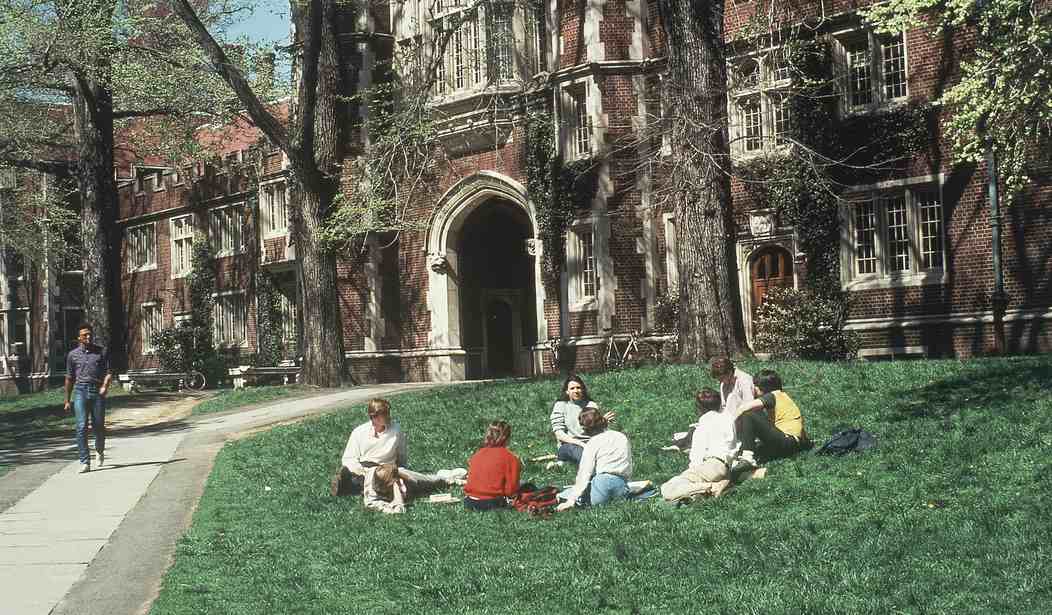Free speech on college campuses has long been a contentious issue. In recent years, the suppression of conservative and libertarian viewpoints has become more prevalent among both faculty and students at a multitude of higher learning institutions.
In this regard, Princeton University, along with others, has been a prime offender when it comes to censoring viewpoints that do not align with the progressive left. However, amidst this concerning trend, there is a glimmer of hope revealed by recent data: Students have expressed a strong desire for robust debate and engagement on controversial topics. While there are significant challenges to overcome, fostering an environment that embraces free expression is still possible.
Princeton University has been ranked as one of the worst colleges for free speech in the United States, according to the College Free Speech Rankings by the Foundation for Individual Rights in Education (FIRE). To further examine the state of free expression on campus and determine effective strategies for advocacy, Princetonians for Free Speech (PFS), a group of alumni committed to protecting free speech and academic freedom, conducted a survey in partnership with College Pulse.
The results are concerning, revealing a decline in students’ comfort in expressing themselves and a tenuous support for free speech culture. A significant percentage of Princeton students feel hesitant and intimidated to share their opinions on controversial topics, indicating a worsening culture for free expression on campus.
Despite the emphasis on free speech during the orientation for incoming students and public statements by Princeton President Christopher Eisgruber, the survey reveals a substantial gap between rhetoric and reality. Edward Yingling, cofounder of PFS, wrote a report discussing the findings of the survey:
Only 18% of students say they are very familiar with Princeton’s free speech rule.
48% of students say that any speech that uses discriminatory language, or language that a class of persons finds offensive or hurtful, should not be allowed, a standard that clearly violates Princeton’s free speech rule. Only 30% say they support the standard of free speech in the First Amendment.
40% of students say an athletic team should be able to deny a spot to, or suspend, a student who expresses views others find offensive, although such action would also clearly violate the university’s rules.
Most disturbingly, only 24% say it is never appropriate to shout down a speaker; only 57% say it is never appropriate to block other students from attending a speech; and 16% say it might at least on rare occasions be appropriate to use violence to block a speaker.
Despite the fear and hesitation students feel in expressing their own views, the data from the survey does offer some reason for optimism. An overwhelming majority of students, 60 percent, expressed a desire for the university president to host debates on controversial topics with credible speakers.
Additionally, 55 percent of students wanted to witness debates on controversial issues featuring external speakers. This indicates that students crave open dialogue and the opportunity to engage in meaningful discussions about important societal issues.
This is an encouraging sign. But it will not be easy to counter the culture cultivated by the authoritarian left at Princeton and other universities. This environment is one in which students and staff are afraid to voice their opinions on controversial – and even non-controversial – issues out of fear of retribution. This can come in the form of cancel culture, lost job opportunities, social ostracization, and even violence.
While it may be challenging to address the environment that suppresses certain types of ideas on campus, the data emphasizes the crucial role of leadership in promoting freedom of expression. Regardless of political affiliation, it is essential to have individuals in positions of influence who are genuinely committed to protecting and fostering an environment conducive to diverse viewpoints. By having leaders who prioritize free speech, Princeton University, and others, can reverse the tide and create a culture that truly values the open exchange of ideas.
It is also important to acknowledge that in at least some of these universities, the authoritarian culture is too deeply entrenched to reverse it. There is no reason why students should have to be subjected to this environment nor is it conducive to producing adults who know how to think critically.
In these cases, it might be appropriate to refrain from sending one’s children to these colleges. Believe it or not, there are still numerous institutions that maintain an environment supportive of diverse perspectives. By opting for institutions that actively promote free speech, students can ensure that they will have the opportunity to engage in open dialogue, challenge their own beliefs, and be exposed to a wide range of ideas.














